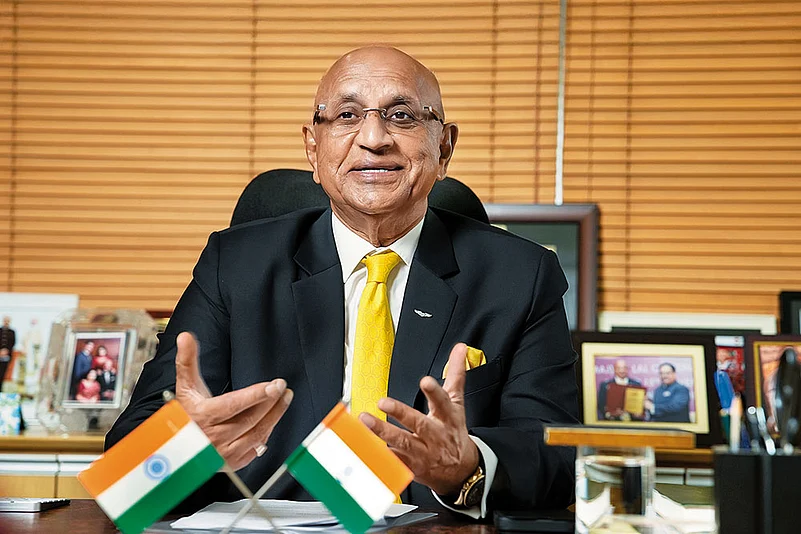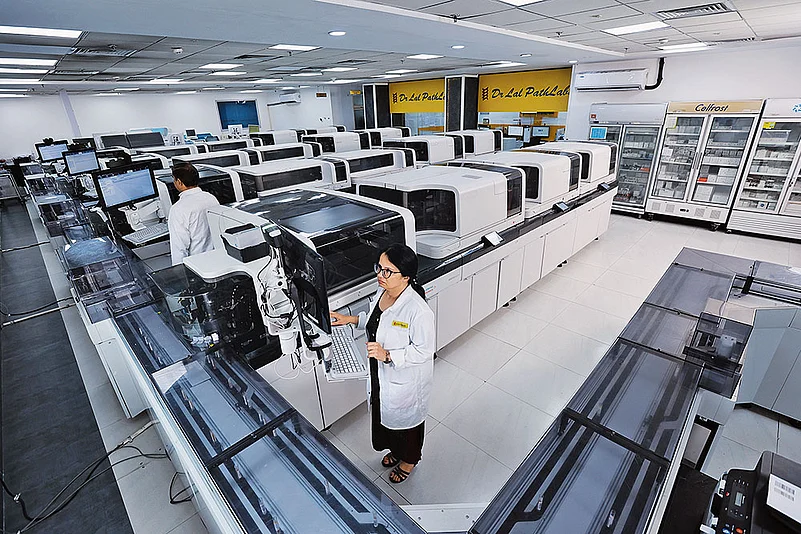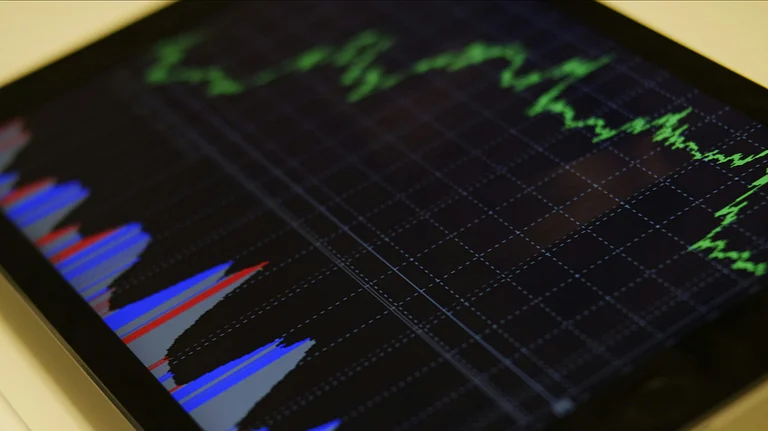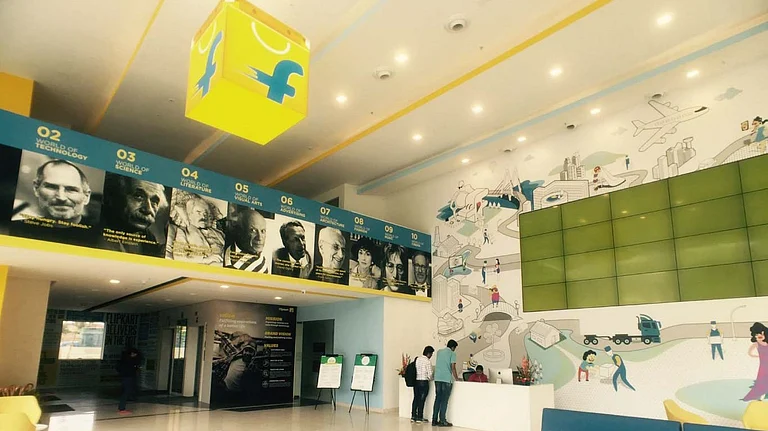The year was 1939. Great Britain had just declared war on Germany. The British Indian Army was called into action. Not just soldiers but also trained medical personnel. With a graduation degree from King Edward Medical College in Lahore, Dr (Major) SK Lal, a trained pathologist was commissioned in Wana, South Waziristan in Pakistan.
Post-Partition, Dr SK Lal, then 31, was one of the millions of refugees who left Pakistan to start life anew in India. He together with many dependents settled in Delhi. He wanted to get back to work. But during those turbulent months everything was chaotic. Government pathological labs were in a mess.
Using his experience in the army labs, Dr SK Lal in 1949 founded Central Clinical Laboratory and Blood Bank Transfusion Centre from his home on Hanuman Road. These were arguably the first private pathological labs in India. A new India was emerging and the challenges facing the country were myriad, poverty chief among them. Dr SK Lal’s professional path too was strewn with hurdles.
There were no established suppliers, procurement chains or ready-to-use reagent kits. He had to start from scratch.

Labs and Legacy
Soon after Dr SK Lal’s death in 1977, the reigns of the lab were passed on to his son Dr Arvind Lal, also a trained pathologist in the army. Before joining his father’s lab, Dr Arvind Lal had a lucrative job as a lecturer and a hostel warden at the Armed Forces Medical College, Pune.
He had learnt the tricks of the trade from his father. There were some scary lessons too. “When I was growing up, we had rabbits, and I was very fond of them. One day, one of my rabbits went missing,” recalls Dr Arvind Lal. Little did the poor boy know that those innocent animals were being used by his father to perform Friedman test, an early form of pregnancy testing.
“It involved injecting a pregnant woman's urine into rabbits. After a day or two, the rabbit would be sacrificed and its ovaries examined for haemorrhages, which indicated pregnancy,” he explains.
Dr Arvind Lal faced his own set of issues when he took over. Handling technicians was a delicate affair. They were his father’s colleagues, now his employees. And he was all of 28 years. The first challenge was to improve efficiency.
“Tests that were supposed to take an hour were being completed in just 35 minutes. When questioned, they [the technicians] simply said, ‘The colour [of the sample] has changed, so it’s done’." Just then he knew that his job was cut out and the culture of cutting corners in lab testing had to be uprooted.
Making It Right
The first few years were spent in revamping many of the test procedures. “It [a pathological lab] is almost like a kitchen. There is a recipe and there are ingredients,” he says. And the kitchen had to be arranged well. This involved establishing standard operating procedures, making home-brewed reagents in the absence of ready-to-use kits. “I had to carry out mundane laboratory chores like ordering raw material from outside, surveying the markets for newer instruments and also pipetting dangerous radioactive material by mouth.”
Things got more organised after his wife Dr Vandana Lal, an MD in pathology from Lady Hardinge Medical College, Delhi joined the lab in 1983. They brought some order in pathology testing and introduced some ethical practices in an industry marred by doctor-pathologist nexus.
With an urge to introduce more tests, Dr Arvind Lal became the first pathologist in Delhi to carry out liver tests. “There were no kits for tests like SGOT and SGPT for liver. I had to weigh the reagents and mix them manually, and adjust their pH levels.”
Its Many Firsts
In 1995, the company was incorporated as Dr Lal PathLabs. The same year it partnered with Quest Diagnostics, an American company, and introduced the test for Wilson’s disease which is caused by copper deposition in the liver. “For specialised tests, carefully packed samples under strict conditions—dry ice, maintained at 4°C — were sent to America,” Dr Arvind Lal says.
To buy sophisticated instruments he borrowed over ₹1.5 crore. For a middling company the loan was a risk but it gradually paid off.
Today, it has nearly 300 labs, including four high-end reference labs in Delhi, Mumbai, Kolkata and Bengaluru. It operates 6,607 patient-service centres and about 5,000 collection centres
There were other investments in improving its services such as the introduction of the first auto analyser in India, a computerised instrument used to automate the analysis of clinical samples. “I had the zeal to bring diagnostics in India up to international standards with the help of automation and advanced technology,” he says.
Dr Lal PathLabs was also the first to get accreditation, including those from National Accreditation Board for Testing and Calibration Laboratories and College of American Pathologists. It is also the only private lab in India with electron microscope in its labs. “We have two of them,” he says.

To grow the business, he needed external capital. “We had to choose our partners very carefully, making sure they aligned with our vision,” Dr Arvind Lal says. In 2005, Westbridge Capital infused ₹28 crore, acquiring 26% stake in the company.
A decade later, the company became the first in the diagnostics industry to go public. Today, its promoters hold 54%.
Presidents, prime ministers and cabinet ministers including R Venkatraman, Manmohan Singh, JP Nadda have all been his patients. Even, a premier hospital like All India Institute of Medical Sciences referred patients to Dr Lal PathLabs. Earlier Mumbai was the go-to city for testing. But now patients from all over the country come to him. “On an average we see 1 lakh patients a day,” Dr Arvind Lal says.
Today, it has nearly 300 labs, including four high-end reference labs in Delhi, Mumbai, Kolkata and Bengaluru.
It operates 6,607 patient-service centres, about 5,000 collection centres and 12,000-plus pick-up points across the country. Satellite labs, automated and equipped with advanced instruments, are present in 135 cities in 27 states. The company plans to move into Tier-III and –IV towns.
In 2013, the company branched out to provide diagnostic services to animals by starting PathVets in Delhi. It is helmed by his wildlife-photographer son Anjaneya. Today it has five centres, three in Delhi and one each in Chandigarh and Mumbai.
In 2024–25, Dr Lal PathLabs clocked revenues of ₹2,461 crore with annual growth of 10%.
Covid and After
Covid-19 was another ‘first’ for Dr Lal PathLabs. And this time, like everybody else it wasn’t prepared. When Indian Council of Medical Research the then director general Dr Balram Bhargava rang up Dr Arvind Lal, he wasted no time.
Twenty more labs were opened across major cities, including Delhi, Mumbai, Pune, Bengaluru, Cochin, Chennai and Hyderabad during that time. It conducted 35 lakh RT-PCR tests in 2021–22.
Though challenging, the pandemic taught many lessons. “It taught us to be prepared for anything, anytime. No disease is going to warn us before coming,” says Dr Lal.
Surviving the pandemic, the company is faced with another challenge—increased competition. Online pharmacies like Tata 1mg, Apollo 24/7, Pharmeasy and Netmeds have all expanded their services to diagnostics. But Dr Arvind Lal is not too worried. “Competition is good. There should be labs in every town in India. But they must follow ethical practices,” he says.
Dr Lal PathLabs has been the market leader for over seven decades. Now, it is time for the leader to rest a bit. Dr Arvind Lal is planning to take it easy. Has he thought about succession? His daughter Archana, he says. She is a geneticist and runs an independent lab called GeneCode in the US.
“Her vast technical expertise and global exposure makes her an ideal candidate to lead the company,” he says.














